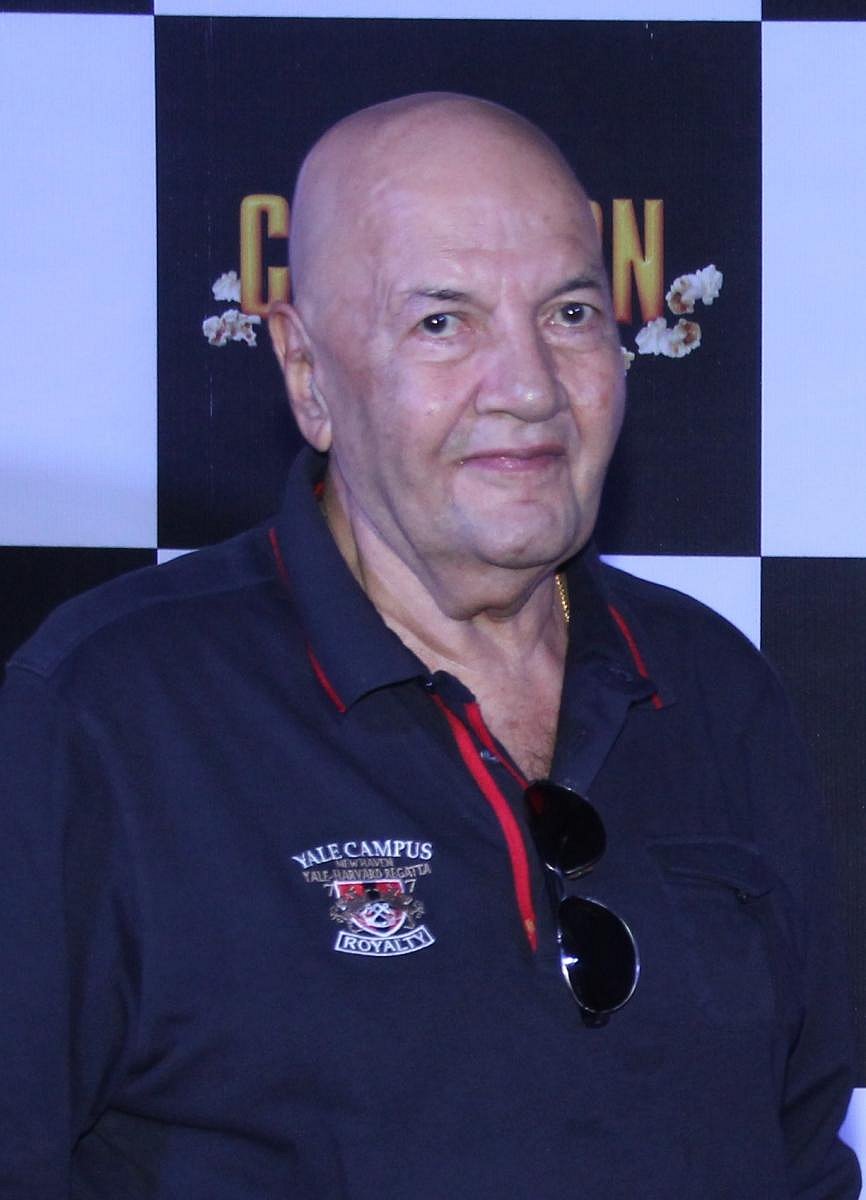
The legendary Prem Chopra came to Mumbai in the late 1950s to be a hero. Ask if he does not regret that he became a villain instead, he tells you, “I came when the industry swore by so many big stars. They gave so many hits. Then their films began to flop and producers stopped signing them. But 60 years after I started
out, I am still working.” Evil, for a change, won over good.
Now 84, Prem continues to be in prem with his work and fitness regime. Looking two decades younger than his age, he has just wrapped up his portions for Yash Raj Films’ Bunty Aur Babli 2. Also released recently is his latest English film, Line Of Descent, with an international cast, and he praises the makers of both films.
For a veteran of over 400 films (mostly Hindi but also Punjabi, Gujarati and English), that’s a big statement. Here’s a man who worked with and got along famously with filmmakers Raj Kapoor, B R Chopra, Manoj Kumar, Raj Khosla, Manmohan Desai, Yash Chopra, Vijay Anand and more, besides with the best of fellow-villains from Pran to Danny Denzongpa, Amjad Khan, Ranjeet and Amrish Puri.
He has just won three prestigious Lifetime Achievement awards — from the Goa and Jaipur International Film Festivals and Star Screen. The actor’s sitting room is literally filled with awards, honours, felicitations and trophies won over the years. And for those who came in late, Prem is also known for his socio-charitable activities and has even won the Mother Teresa Award for it.
Prem Chopra, the son of a government officer who would have liked him to be a doctor, but did not object when Prem decided instead to follow a future in films after participating in dramatics through his academic years. His father’s only condition was that his son should take up a steady job while trying to make his hobby his profession.
“I joined The Times Of India in Mumbai on a cushy, fun job with lots of travel involved and a nice salary of Rs 2,500,” the actor smiles. “I kept looking for work too, and landed a hero’s role in the Punjabi film, Chaudhary Karnail Singh, which released in 1960. The film was a hit and won a National Award.”
However, his career did not progress in Hindi until Woh Kaun Thi? (1964) and Shaheed (1965). Prem owes a lot to Manoj Kumar, as he finally also shot to fame as Manoj Kumar’s villainous brother in the 1967 Upkar. “Upkar was a significant film in my career, as it was halfway through its shooting that I dared to risk leaving my job. I became a villain because my films as hero flopped and those as villain became hits.” Of course, apart from his lead roles in Punjabi films, Prem did the occasional sympathetic role in Hindi as well, even trying out comedy in the 1990s. Of late, most of his characters have been benevolent, befitting his cordial, warm personality. Soon, Prem became a villain in-demand and did a series of films each with names like Rajendra Kumar, Shammi Kapoor, Dharmendra, Shashi Kapoor, Jeetendra, Rajesh Khanna and Amitabh Bachchan. The actor has special regard among his films for some flops wherein he was appreciated for a key role, like Aas Paas and Rocket Singh: Salesman Of The Year. His other favourites include Do Anjaane (which won him the Filmfare Award for Best Supporting Actor). Himmat, Kati Patang, Do Raaste, Kranti and Raj Kapoor’s Bobby. “But what I think isn’t important. The audience should appreciate
him, and for that the picture should be a hit,” he tells you.
Says Prem, “Raj Kapoor was confident that my cameo would be loved more than most full-fledged roles. He was right. Till date, people remember me and my iconic line, “Prem naam hai mera. Prem Chopra.” Prem’s one-liners in films are so well-known that he would even do shows of his own, in which he would also sing. The actor treasures his association with other big names as well. “Dilip Kumar was among my inspirations and is very fond of me. When I was termed ‘better’ than him in Bairaag by a critic, I was afraid Dilip-saab would get annoyed. Dev (Anand)-saab was another darling. He would call me “Premi” and was planning Hare Rama Hare Krishna 2 when he left for London, from where he never came back.”
Prem is documenting his biography, Prem Naam Hai Mera, written by one of his three daughters, Rakita Nanda. Ask him the secret of his long innings, and he just smiles and says, “Hard work. I always tried to do something new in every role.”